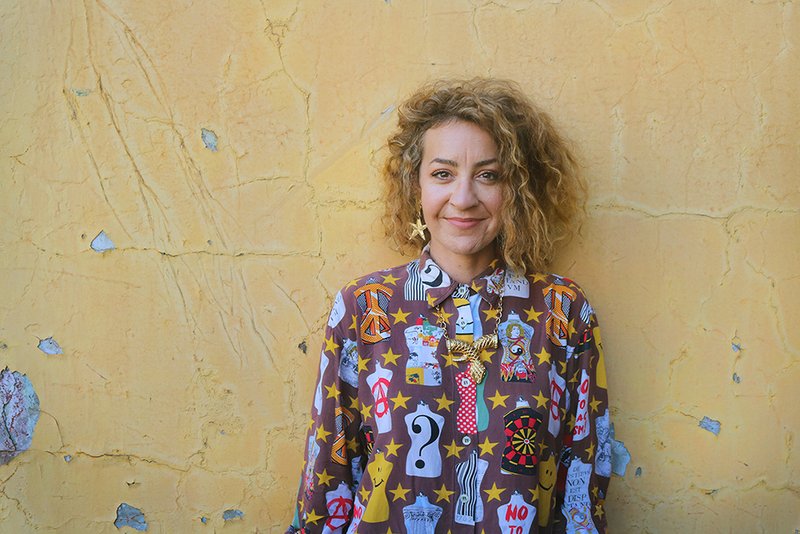
Amala Groom. Photograph by Penelope Benton
Wiradjuri artist, Amala Groom, has been elected unopposed as the first Aboriginal or Torres Strait Islander Visual Arts Representative Director on the board of the NAVA.
From NAVA
Amala Groom is a New South Wales based conceptual artist whose practice is informed by, and reflects, Aboriginal methodologies, epistemologies and ways of being. Her work, as a form of passionate activism, delivers insightful commentary on contemporary society, politics and race relations.
Groom said today, “It is both an honour and a privilege to have been nominated to hold the first dedicated Aboriginal or Torres Strait Islander Director’s position on the NAVA Board. I bring to the role both my personal expertise as a practitioner and my background in Aboriginal political and legal advocacy.
My voice is one of the many thousands of Aboriginal and Torres Strait Islander visual artists, curators, writers, agents, academics and arts workers. I aim to work with our Aboriginal and Torres Strait Islander visual arts community, as it is the collective voice that this role requires the mandate to be both culturally appropriate and representative.”
Groom went on to say “At present the Aboriginal and Torres Strait Islander visual arts community does not have a coordinated national voice that speaks to the wide diversity that exists across our hundreds of nations. As the Custodians of the oldest cultures on earth, our collectivised voice must be heard.
In this role I aim to work collegially with our visual arts community and the NAVA board to advocate for the development of a supported national network and advocacy body for Aboriginal and Torres Strait Islander artists.
I greatly look forward to working with the NAVA Board to raise the profile of the Aboriginal and Torres Strait Islander visual arts community throughout the duration of my two-year tenure.”Chair of NAVA, James Emmett expressed the delight of the board with this appointment saying, “It gives the Board great pleasure to welcome Amala and to affirm its commitment to Aboriginal and Torres Strait Islander artists. Amala’s voice will be a very important one.”
Working with Amala, NAVA looks forward to expanding the scope of its work to benefit Aboriginal and Torres Strait Islander artists. Early in its history NAVA established the National Indigenous Arts and Culture Alliance and more recently was responsible for the foundation work on the Indigenous Art Code. In setting up Viscopy and leading the charge on securing Resale Royalty Rights and Moral Rights, a motivating force for NAVA was knowing that these regulations would deliver substantial benefits for Indigenous artists. Over 65% of the artists receiving
royalties via the Artists’ Resale Royalty Rights scheme (now managed by the Copyright Agency) are Aboriginal or Torres Strait Islander artists.
